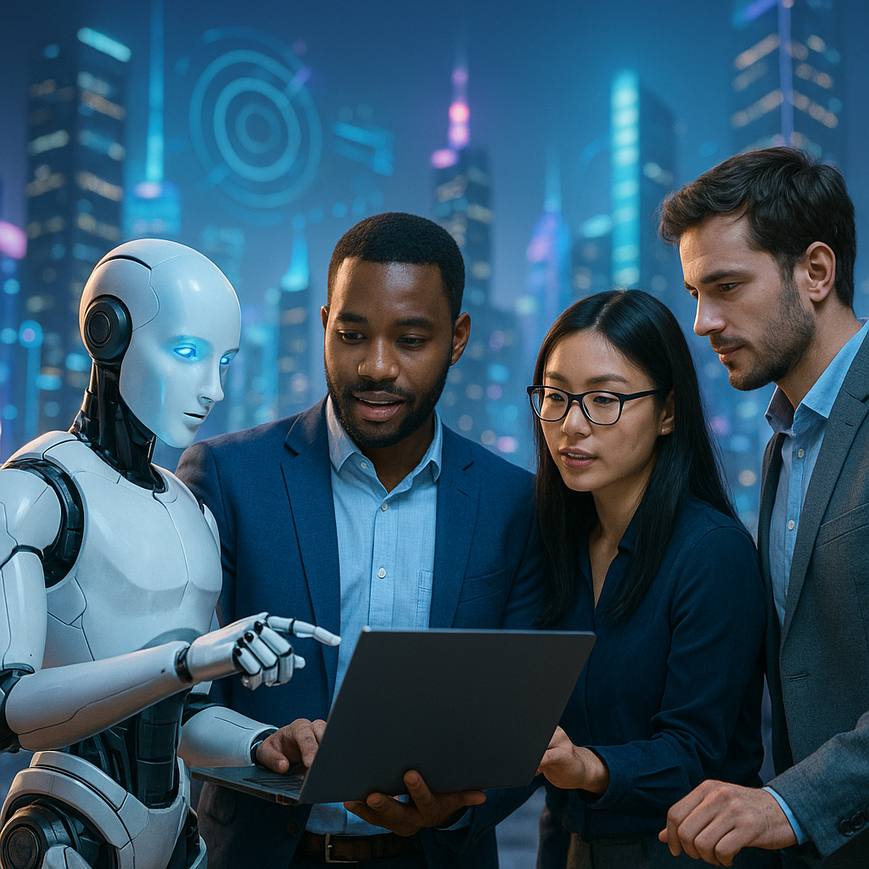
The Future Of Work: Thriving In An AI-Driven Economy
“`html
Essential Skills for a Competitive Workforce
In today’s job market, employees must harness a blend of technical, cognitive, and emotional skills to remain competitive. Each of these skill categories is critical in navigating the evolving landscape of work.
Technical Skills
Technical skills are foundational for success in various industries. These include proficiency in emerging technologies, data analysis, coding, and software proficiency. According to the World Economic Forum, it is essential for workers to adapt to technological advancements such as artificial intelligence and automation to maintain their relevance in the field.
Cognitive Skills
Cognitive skills such as critical thinking, problem-solving, and creativity are increasingly sought after in the workplace. A survey from the McKinsey Global Institute highlighted the importance of these skills in enabling employees to innovate and tackle complex challenges effectively.
Emotional Skills
Emotional intelligence, empathy, and resilience are vital for effective teamwork and leadership in diverse work environments. Research by the Center for Creative Leadership indicates that leaders with high emotional intelligence are more effective at managing stress and inspiring their teams.
To develop these critical skills, continuous learning is imperative. Opportunities include online courses, mentorship, and practical experiences. Leveraging platforms that provide training enhancements can significantly improve individual career paths and overall workplace effectiveness. For additional insights into workplace adaptation and skill development, refer to our article on mastering market volatility.
The Impact of AI on Workplace Productivity
AI-driven productivity is revolutionizing workplaces by enhancing efficiency and fostering innovation. By automating repetitive tasks, AI allows employees to concentrate on strategic initiatives, which can lead to increased output and creativity. For example, AI tools facilitate data analysis, enabling organizations to make informed and timely decisions as emphasized in a report by McKinsey.
Nonetheless, the swift adoption of AI technologies unveils significant ethical concerns. These encompass data privacy, algorithmic bias, and the transparency surrounding AI decision-making processes. As reported by the MIT Media Lab, addressing these issues is crucial for organizations to prevent perpetuating inequalities and infringing upon individual rights.
Additionally, AI’s effects on the labor market cannot be overlooked. Automation threatens to displace workers across various sectors, particularly impacting low-skilled jobs. The World Economic Forum predicts that by 2025, 85 million jobs will be displaced due to the shift between human and machine labor. Proactive workforce reskilling and upskilling are essential to alleviate this risk.
As organizations balance the benefits of AI-driven efficiencies with ethical considerations and workforce consequences, they pave the way for sustainable growth. For more information on adapting to technological advancements, read our article on strategies for thriving in turbulent times.
Sources
- MIT Media Lab – AI Ethics Report
- Center for Creative Leadership – Emotional Intelligence and Leadership: Why It’s Important
- McKinsey – Artificial Intelligence
- McKinsey & Company – What the Future of Work Will Look Like
- World Economic Forum – The Future of Jobs Report 2020
“`








